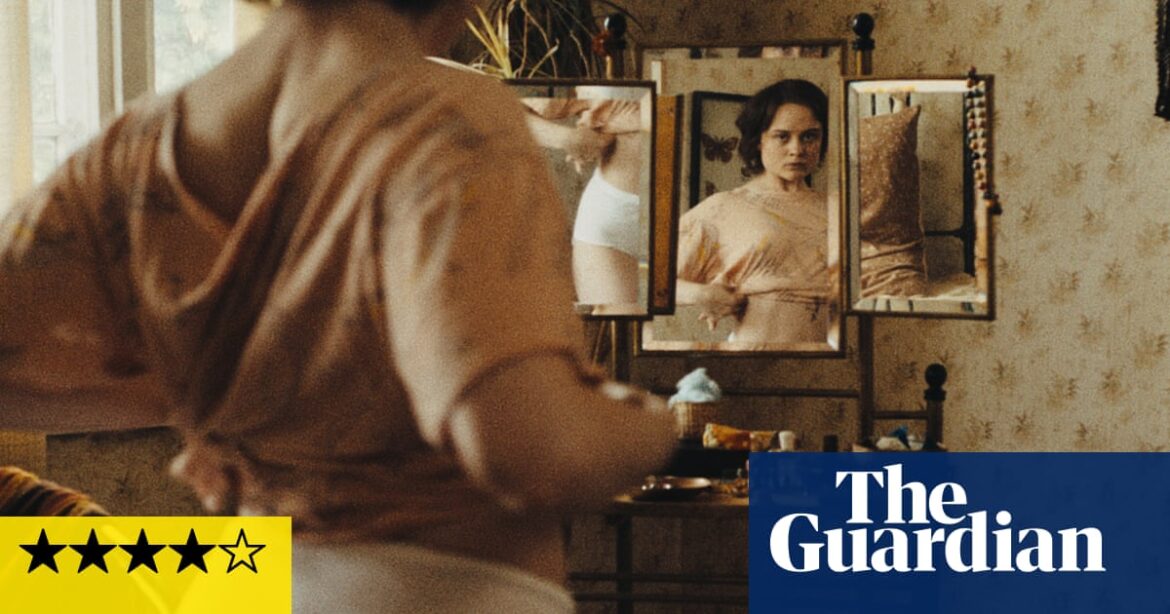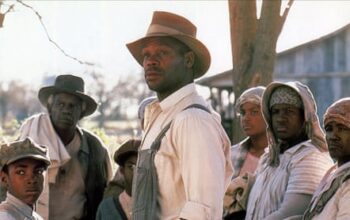
Here is a mysterious and uncanny prose-poem of guilt, shame and yearning in 20th-century Germany, and the 21st; a drama of intergenerational trauma and genetic memories, visions and experiences suppressed and handed on to descendants and grandchildren in whom they can return as neurotic symptoms of the repressed.
There are visual rhymes and unexplained cosmic echoes, and the film speaks of militarism and resentment, guilt and horror, with dark hints of abuse and sterilisation, the female slavery of domestic servitude and the pastoral world of rural Germany in which the city’s political currents are only dimly perceived. And it gestures at the terrible pathos of the old GDR, which laboured and sacrificed for 40 years after the war in Soviet vassalage finally to discover it was for nothing. The film’s original German title is In Die Sonne Schauen, or Staring at the Sun.
The action takes place in the same location in four different timeframes: a farm in Saxony-Anhalt in northeastern Germany, four buildings enclosing a courtyard. In the years during and just after the first world war, a young man called Fritz (Filip Schnack) has a leg amputated due to what the family agrees was a “work accident”; he must be bathed and intimately attended to by maid Trudi (Luzia Oppermann) who is herself bearing the burden of unnameable cruelty. The centre of this chapter is Alma (Hanna Heckt) a little girl who regards with bland, uncomprehending acceptance the family’s strange traditions, its macabre “death photographs” of deceased family members, and is puzzled by a photograph like this of someone who looks like her.
Some years later, in the same household, Erika (Lea Drinda) conceives a morbid, quasi-erotic fascination with older “Uncle Fritz” (Martin Rother) and with her own fantasy self-image as an amputee. Later again, in the old East Germany, Angelika (Lena Urzendowsky) is a teen working on the farm, abused by her odious Uncle Uwe (Konstantin Lindhorst) and dreamily aware that Uwe’s son – that is, her cousin Rainer (Florian Geisselmann) – is resentfully in love with her. When Angelika joins the family group for a Polaroid group photo, she experiences an uncanny fate like Alma. And still later, in modern unified Germany, Lenka (Laeni Geiseler) befriends a strange, intense girl called Kaya (Ninel Geiger) whose mother has died.
Gradually and incrementally the connections between the characters reveal themselves, and the film also hints at more characters and more uncanny and foretold events yet to come. What unites them is not just the farm but the river in which they swim, which forms part of the border with the west, and which contains slitheringly repulsive eels, like the English fenland.
Perhaps like Haneke’s The White Ribbon, Mascha Schilinski’s film is something like a ghost story or even a folk-horror and there is a clammy unease in every shot as the camera drifts up and away from scenes like a ghost; the soundtrack throbs and groans with ambient disquiet. It is dense with fear and sadness.
Source: theguardian.com



